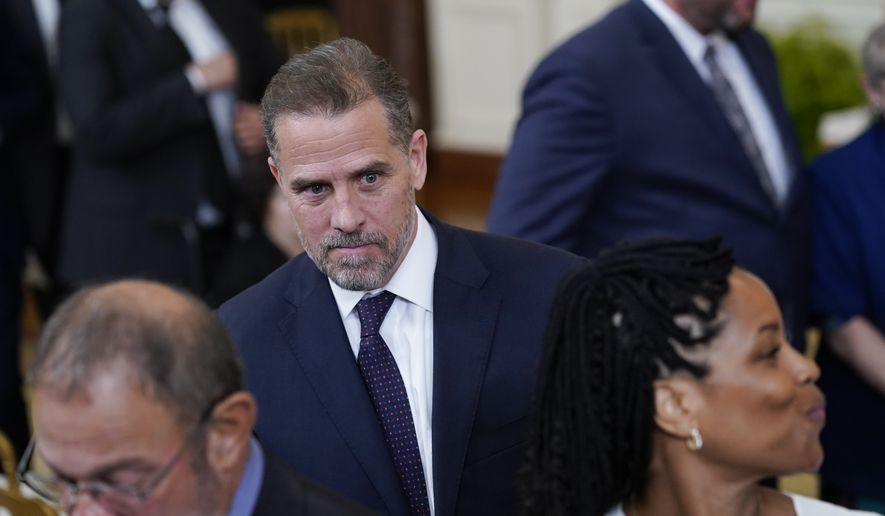Senate Republicans are urging Attorney General Merrick Garland to confer the powers of a special counsel to the Delaware prosecutor investigating Hunter Biden for potential tax crimes and influence peddling.
In a letter sent Monday, more than 30 Senate Republicans said David Weiss, the Delaware U.S. attorney overseeing the investigation of President Biden’s son, must be made a special counsel to prevent undue political interference.
“Given that the investigation involves the president’s son, we believe it is important to provide U.S. Attorney Weiss with special counsel authorities and protections to allow him to investigate an appropriate scope of potentially criminal conduct, avoid the appearance of impropriety and provide additional assurance to the American people that the Hunter Biden investigation is free from political influence,” they wrote.
GOP senators who signed the letter include John Cornyn of Texas; Charles E. Grassley of Iowa, the highest-ranking Republican on the Senate Judiciary Committee; and Minority Leader Mitch McConnell of Kentucky.
A Justice Department spokesperson did not immediately respond to a request for comment.
A special counsel essentially has the same powers as a U.S. attorney and remains subject to the attorney general, so it would not expand Mr. Weiss’ authority. But it would give him more independence to pursue the investigation and protect him from arbitrary firing.
Under federal law, a special counsel can be removed only for “misconduct, dereliction of duty, incapacity, conflict of interest or other good cause.” An attorney general is also required to explain the firing of a special counsel to Congress.
An attorney general may overrule or block a special counsel on major steps such as whether to charge someone with a crime, but such decisions must also be explained to Congress.
The Republican senators say the move is necessary because after “highly credible” whistleblowers revealed that FBI officials sought to discredit negative information about Hunter Biden, Mr. Garland clamped down on whistleblower activity.
Mr. Garland last month issued a memo blocking Justice Department employees from communicating with Congress, directing all employees to contact lawmakers through the department’s office of legislative affairs.
In a memo to department employees, Mr. Garland said the policy is “to protect our criminal and civil law enforcement decisions,” and to guard against “partisans or other inappropriate influences.”
The Republicans say the memo chilled lawful whistleblower activity.
“Such a restriction is contrary to law and undermines the constitutional responsibility of Members of Congress to provide congressional oversight of the Executive Branch,” they wrote. “Clearly, this memorandum will discourage and deter whistleblowers from sharing information to report potentially criminal activity and fraud, waste, and abuse by the government.”
When President Biden took office last year, he removed sitting U.S. attorneys, except Mr. Weiss to avoid the appearance of political interference. Mr. Weiss was appointed by former President Donald Trump.
In testimony before the Senate Judiciary Committee in April, Mr. Garland fiercely defended the investigation’s independence.
When pressed by Sen. Bill Hagerty, Tennessee Republican, on how the American people could be confident the Justice Department is running a “serious investigation” into Hunter Biden, Mr. Garland gave a heated response.
“Because we put the investigation into the hands of a Trump appointee from the previous administration who is the United States attorney for the District of Delaware and because you have me as the attorney general who is committed to the independence of the Justice Department from any influence from the White House on criminal matters,” Mr. Garland said.
He said the president has not tried to influence the probe and any effort by Mr. Biden to do so would “absolutely” be inappropriate.
• Jeff Mordock can be reached at jmordock@washingtontimes.com.




Please read our comment policy before commenting.